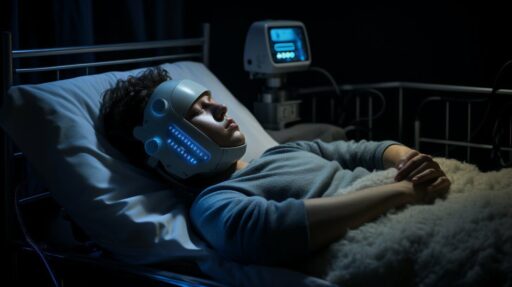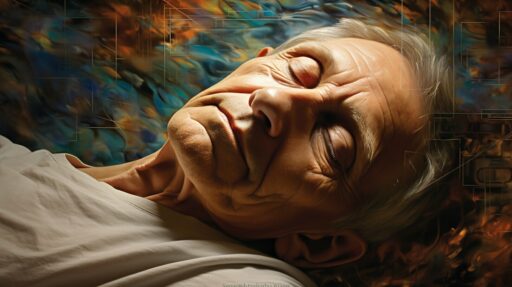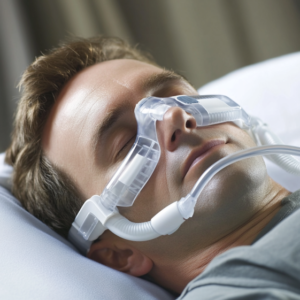
Sleep Disorder Effects
Sleep disorder effects can disrupt your entire life—from your health to your mood and productivity. Understanding these effects is key to better rest.
Key Takeaways
- Health Risks: Sleep disorders increase the risk of chronic illnesses like heart disease, diabetes, and depression.
- Common Culprits: Insomnia, sleep apnea, RLS, and narcolepsy are widespread yet manageable.
- Simple Solutions: Creating a sleep-friendly environment boosts quality rest.
- Early Recognition: Spotting symptoms early can prevent serious consequences.
- Professional Help: Sleep hygiene combined with medical support delivers lasting relief.
Why Sleep Disorder Effects Matter
A restful night’s sleep is more than just recharging—it’s vital for your mind and body. When sleep disorder effects kick in, they can spiral into bigger issues, such as chronic fatigue, weakened immunity, and even heart problems. Research from the CDC and National Institute of Neurological Disorders and Stroke confirms how poor sleep quality impacts long-term health and cognitive function.
Addressing sleep issues early means investing in your overall well-being—from sharper thinking to emotional resilience. If you’re looking to realign your biological rhythm, our guide on how to reset your circadian rhythm provides actionable steps to help.

Common Sleep Disorders and Their Effects
Insomnia: Struggling to Fall or Stay Asleep
Insomnia often stems from stress or poor habits. If you lie awake at night or wake up too early, you’re not alone. Millions face this challenge. Combining environmental adjustments with expert-backed sleep systems—like those discussed in adjustable sleep systems for wellness—can offer lasting relief.
Sleep Apnea: More Than Just Snoring
Interrupted breathing and loud snoring are just the beginning. Sleep apnea leaves you exhausted even after a full night’s sleep. Consider using inclined bed therapy techniques to ease symptoms and breathe more easily at night.
Restless Legs Syndrome: The Nighttime Urge to Move
RLS causes tingling or crawling sensations in the legs. While movement offers momentary relief, it severely interrupts rest. Understanding your body’s needs and personalizing your bed setup—perhaps through a customizable adjustable frame—can help manage symptoms.
Narcolepsy: Sudden Sleep Attacks
Narcolepsy leads to unexpected drowsiness during the day, sometimes while you’re active. It can be disruptive and often requires medical attention. Explore this Sleep Foundation overview to understand its deeper impact.

The Real-World Effects of Sleep Disorders
- Health: Higher risks for chronic conditions like stroke and heart disease.
- Mood: Mood swings, depression, and anxiety often follow persistent sleep loss. For more, read this NIH-supported study.
- Safety: Poor sleep slows reaction times and increases accident risk.
- Cognition: Expect memory issues and reduced concentration if rest suffers. Also consider how bed size affects sleep quality for both individuals and couples.
In some cases, adjusting your setup with an adjustable bed can directly support breathing, posture, and comfort—all contributing to deeper rest.

Creating a Cozy Environment for Better Sleep
Transform Your Bedroom
Start with blackout curtains, calming wall tones, and natural fabrics. Combine that with proper bed support to reduce nighttime discomfort. For more complete tips, explore our guide on bedroom wellness and adjustable solutions.
Maintain a Consistent Routine
Sleep thrives on consistency. Stick to regular sleep and wake times, and build calming habits like light reading or herbal tea into your evenings. A structured rhythm improves your body’s sleep efficiency over time.
Be Mindful of Sleep Disruptors
Cut back on caffeine after midday, limit alcohol, and avoid screens before bed. These subtle changes can have a powerful effect on sleep cycles. Check our tips on regulating your circadian rhythm naturally.
Myth Buster: “Older Adults Need Less Sleep”
While sleep may become lighter with age, adults still need 7–9 hours nightly. Constant fatigue is not a normal part of aging. It might be time to consult a professional or revisit your sleep setup. For deeper understanding, consult the Sleep Foundation’s disorder guide.

FAQ
- What are the most common sleep disorder effects?
- Common effects include fatigue, mood swings, memory lapses, and a higher risk for chronic conditions like heart disease.
- Can sleep disorders be cured naturally?
- Many can be improved with sleep-friendly routines, diet changes, and environment tweaks, though medical intervention may still be necessary.
- How does poor sleep impact mood?
- Sleep deprivation impairs emotional regulation, leading to irritability, anxiety, and a higher risk of depression.
- Do sleep disorders affect productivity?
- Yes. Lack of sleep hinders focus, decision-making, and overall cognitive performance, which reduces productivity.
- Where can I learn more about sleep disorders?
- Explore the Sleep Foundation’s resources or review the NIH’s clinical publications on sleep health.
Dealing with sleep disorder effects doesn’t mean settling for restless nights. With a mix of mindful changes and expert guidance, better sleep—and better days—are entirely within reach.
Browse additional tips on resetting your internal clock and improving sleep quality, or check out our full range of adjustable sleep solutions for comfort-focused rest.
